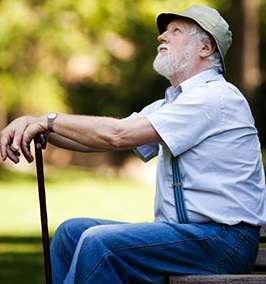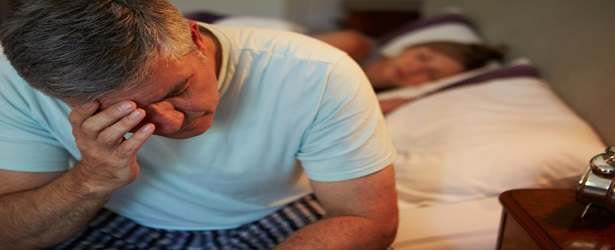
The Facts about Enlarged Prostrates
Most men don’t realize they have problems with their prostates until they are in their late thirties or early forties. During these years the walnut-sized gland begins to grow. Since the prostate gland encircles the urethra and is located just below the bladder, it causes frequent or uncontrolled urination especially at night time. The primary function of the prostate gland is to secrete seminal fluid which aids in the ejaculatory process of semen.
 An assistant professor of urology has stated that prostate enlargement has been found to be related to the development of prostate cancer. James Smolev, MD stated that this is a reason why men ages 45 and older must undergo a yearly prostate exam.
An assistant professor of urology has stated that prostate enlargement has been found to be related to the development of prostate cancer. James Smolev, MD stated that this is a reason why men ages 45 and older must undergo a yearly prostate exam.
Usually, an enlarged prostate will not develop into prostate cancer but will result in a condition known as benign prostatic hypertrophy (BPH).
Signs and Symptoms of an Enlarged Prostate
As the prostate gland grows larger, pressure on the urethra increases. More pressure results from the tightening of the muscles surrounding the urethra. Oftentimes, this pressure does not hurt but it may lead to problems with urination such as dysuria.
Men with an enlarged prostate might have to urinate as soon as they feel pressure in their bladder, or else they might have trouble with the flow, maintenance of strong flow, and ending of the flow of urine. Someone with this problem also tends to get up repeatedly due to bladder pressure and would also tend towards nocturia.
Causes of Enlarged Prostate
Certain hormones are directly related to prostate growth in men, especially older ones. During the 40s, testosterone and other hormonal levels of older men begin to drop while other hormones like prolactin increase.
 Bastyr University President Joseph Pizzorno, N.D. has stated that the ultimate effect of hormonal changes is an increase in the male sex hormone dihydrotestosterone (DHT), a converted testosterone. DHT is a hormone responsible for the growth of tissues surrounding the prostate gland, which in turn causes BPH.
Bastyr University President Joseph Pizzorno, N.D. has stated that the ultimate effect of hormonal changes is an increase in the male sex hormone dihydrotestosterone (DHT), a converted testosterone. DHT is a hormone responsible for the growth of tissues surrounding the prostate gland, which in turn causes BPH.
An enzyme known as 5-alphha-reductase converts testosterone into DHTs. Current BPH remedies, to be effective, must be able to inhibit the enzyme in converting testosterone.
Enlarged Prostate Treatment
Fifty percent of men over the age of 50 get to notice the signs and symptoms of BPH. The percentage of men with BPH symptoms increases as age increases. Generally, BPH symptoms worsens if proper treatment is not given however it varies with the person’s vulnerability.
According to Dr. Richard Macchia, some men experience a significant worsening of symptoms in a span of six years, while others experience this change after more years. While others notice the symptoms in the early years, some might not notice changes for 15 years or more. Some men don’t even experience the worsening of symptoms.
Seeking consultation depends on the person. According to Dr. Smolev, prostate consultation is an individual’s decision. Most of the physicians that treat prostate enlargement prescribe oral medications or even surgery, while others consider natural remedies to treat BPH.
TOP 5
PROSTATETreatments |
|||||
| Proaxil | Prostacet | Prostanol | Antiiva | ProState Relief | |
|---|---|---|---|---|---|
| 1 | 2 | 3 | 4 | 5 | |
| Price (1 bottle) Price (6 bottles) Best Value |
$49.95 $139.80 |
$49.95 $299.70 |
$39.95 $239.70 |
$29.95 $179.70 |
$39.95 $239.70 |
| Overall Rating | 99.6% | 88.2% | 80.9% | 77.8% | 69.1% |
| Effectiveness* |





|





|





|





|





|
| Speed of Results* | Extremely Fast | Good | Average | Average | Slow |
| Quality of Ingredients | Premium | Good | Good | Average | Average |
| Customer Satisfaction Evaluation | 99% | 86% | 80% | 75% | 66% |
| Safety Evaluation | Safe for Use | Safe for Use | Safe for Use | Safe for Use | Safe for Use |
| Customer Service Rating |





|





|





|





|





|
| Reorder Rate | Highest | Good | Good | Average | Average |
| Return Policy | Risk Free | Good | Risk Free | Good | Risk Free |
| Success Rate | 99% | 85.2% | 78% | 74% | 67% |

 Subscribe Now
Subscribe Now











